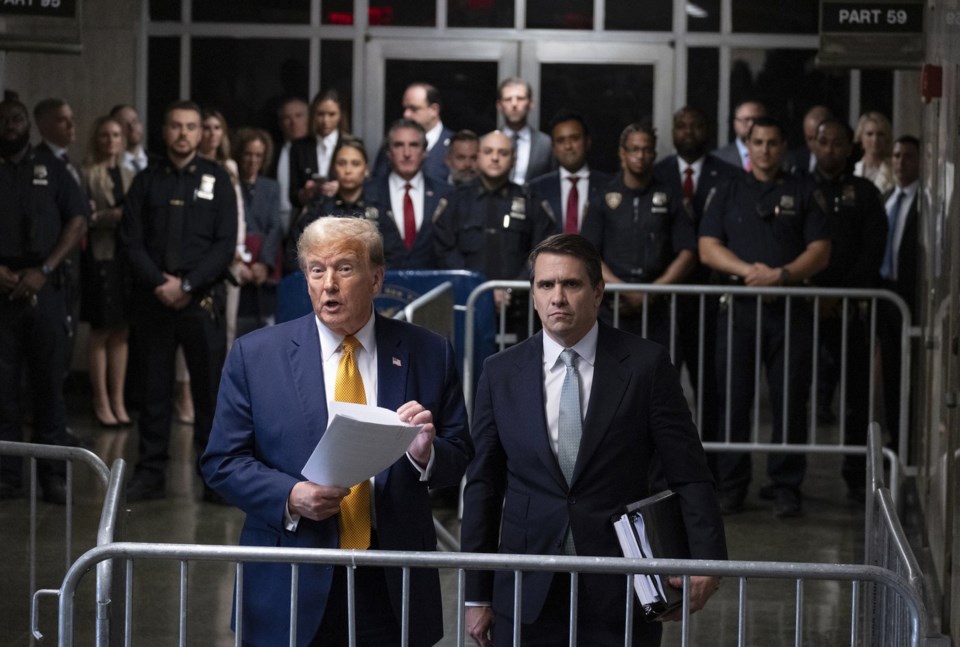NEW YORK (AP) — A judge is due to decide Tuesday whether to undo President-elect Donald Trump’s conviction in his hush money case because of a U.S. Supreme Court ruling on presidential immunity.
New York Judge Juan M. Merchan, who presided over Trump's historic trial, is now tasked with deciding whether to toss out the jury verdict and order a new trial — or even dismiss the charges altogether. The judge's ruling also could speak to whether the former and now future commander-in-chief will be sentenced as scheduled Nov. 26.
The Republican won back the White House a week ago but the legal question concerns his status as a past president, not an impending one.
A jury convicted Trump in May of falsifying business records related to a $130,000 payment to porn actor Stormy Daniels in 2016. The payout was to buy her silence about claims that she had sex with Trump.
He says they didn’t, denies any wrongdoing and maintains the prosecution was a political tactic meant to harm his latest campaign.
Just over a month after the verdict, the Supreme Court ruled that ex-presidents can’t be prosecuted for actions they took in the course of running the country, and prosecutors can’t cite those actions even to bolster a case centered on purely personal conduct.
Trump’s lawyers cited the ruling to argue that the hush money jury got some evidence it shouldn't have, such as Trump’s presidential financial disclosure form and testimony from some White House aides.
Prosecutors disagreed and said the evidence in question was only “a sliver” of their case.
Trump's criminal conviction was a first for any ex-president. It left the 78-year-old facing the possibility of punishment ranging from a fine or probation to up to four years in prison.
The case centered on how Trump accounted for reimbursing his personal attorney for the Daniels payment.
The lawyer, Michael Cohen, fronted the money. He later recouped it through a series of payments that Trump’s company logged as legal expenses. Trump, by then in the White House, signed most of the checks himself.
Prosecutors said the designation was meant to cloak the true purpose of the payments and help cover up a broader effort to keep voters from hearing unflattering claims about the Republican during his first campaign.
Trump said that Cohen was legitimately paid for legal services, and that Daniels’ story was suppressed to avoid embarrassing Trump’s family, not to influence the electorate.
Trump was a private citizen — campaigning for president, but neither elected nor sworn in — when Cohen paid Daniels in October 2016. He was president when Cohen was reimbursed, and Cohen testified that they discussed the repayment arrangement in the Oval Office.
Trump has been fighting for months to overturn the verdict and could now seek to leverage his status as president-elect. Although he was tried as a private citizen, his forthcoming return to the White House could propel a court to step in and avoid the unprecedented spectacle of sentencing a former and future president.
While urging Merchan to nix the conviction, Trump also has been trying to move the case to federal court. Before the election, a federal judge repeatedly said no to the move, but Trump has appealed.
Jennifer Peltz And Michael R. Sisak, The Associated Press



